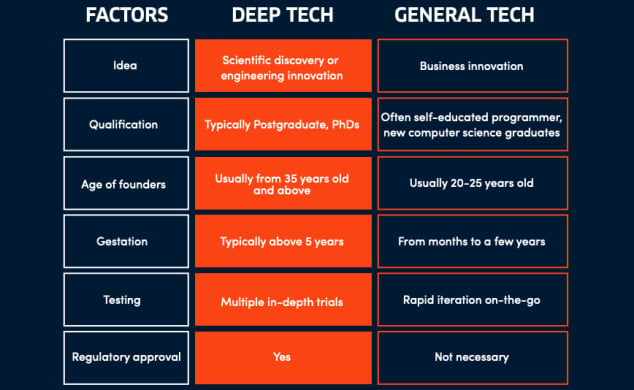The concept of deep tech was introduced by Swati Chaturvedi, CEO of Propel(x), to distinguish between tech startups using common technologies and companies undertaking long-term research and development (R&D) for innovative advancements.
While general tech startups offer online solutions for everyday problems, deep tech companies focus on tackling major issues and providing advanced solutions to complex challenges.
Typically, deep tech startups emerge from research labs with breakthrough technologies developed by PhD students or research scientists.
In Singapore, many deep tech startups are spin-offs from university research programs like NUS’s GRIP, which allows PhDs and research staff to start their own companies alongside their studies or full-time work.
Colin Miles of Zilliqa, a spin-off from NUS, mentioned the academic investment in startups and the commercialization of projects in an interview with e27.
Also Read: NextBillion.ai crowned as champion of the SLINGSHOT 2020 deep tech startup competition
For example, Breathonix, incubated at NUS, recently launched a breath test for quick COVID-19 detection using volatile organic compounds in exhaled breath.

Difference between general tech and deep tech startups. (Photo credits: SGInnovate)
A fertile ground
Singapore is investing in deep tech to gain a competitive edge in the region, recognizing its strength in talent and research facilities compared to other countries in the region.
Government initiatives like PowerX aim to upskill talent for deep tech sectors such as robotics, while strong IP laws protect startups and provide confidence to scientists.
Challenges faced
Deep tech startups often struggle with funding due to the high-risk nature of their projects, lack of awareness, and longer timeframes for R&D compared to general tech startups.
Investors are hesitant to fund deep tech startups, and founders, usually scientists, may lack business management experience.
Increased help
The government has allocated funds and launched programs like SG Equity Scheme to support deep tech startups, along with accelerators like Tribe Accelerator.
What does the future hold?
While progress has been made in supporting deep tech startups in Singapore, more collaboration is needed from various stakeholders in the ecosystem to further develop this sector.
Also Read: Breaking the glass ceiling: These 6 women are making their marks in the deep tech field
Supporting deep tech startups is crucial to drive innovation and advancements in Singapore.
—
Anisa Menur Maulani also contributed to this article.
Image Credit: Uriel Soberanes on Unsplash
This article was first published on December 28, 2020
The post Uncovering the rise and challenges faced by deep tech startups in Singapore appeared first on e27.
